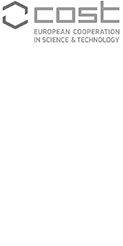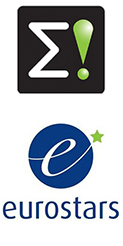Digital, industrial and space technologies
BRIDGE (2017- )

BRIDGE funds projects at the interface between basic research and science-based innovation that have the potential to develop an innovative product or service.
BRIDGE is a joint program of the Swiss National Science Foundation and Innosuisse.
Copernicus (1998- )

Copernicus is the European Earth Observation and Monitoring Programme, a partnership between the EU, the European Space Agency and the European Environment Agency.
Copernicus publishes calls to further develop the monitoring system. Its previous name was Global Monitoring for Environment and Security (GMES).
Note: Swiss participation and funding depends on the call.
COST – European Cooperation in Science and Technology (1971- )

The goal is to bundle nationally funded research projects into pan-European networks (COST Actions) across all science and technology fields.
COST generally does not fund research but provides support for the networking activities within the COST Actions. The SNSF, the Swiss COST Coordinator, has limited funds available for research.
Note: Swiss participation depends on the COST Action.
Electronic Components and Systems for European Leadership (2014-2024)

The goal is to boost Europe’s electronics manufacturing capabilities.
ECSEL is a Joint Technology Initiative between the EU and three associations in the areas of micro- and nanoelectronics, smart integrated systems, and embedded/cyber-physical systems.
EUREKA (1995-) INKL. EUROSTARS (2007-)

Eureka supports market-oriented projects between companies, research institutes and universities in order to strengthen Europe's competitiveness.
Eurostars, a joint program of Eureka and the European Commission, specifically supports innovative SMEs that want to develop new products, processes or services for commercialisation in cross-border collaborations.
Note: Swiss participation is funded by Innosuisse.
European Partnerships – Digitalisation

The goal is to coordinate research and innovation activities to address Europe’s most pressing challenges. The European Partnerships are joint initiatives between the EU, national authorities and/or the private sector:
AI, Data and Robotics; European High-Performance Computing (EuroHPC); Key Digital Technologies (KDT); Smart Networks and Services (SNS); Photonics.
See also: EIT Digital.
Note: Swiss participation and funding depends on the partnership.
European Partnerships – Industry

The goal is to coordinate research and innovation activities to address Europe’s most pressing challenges. The European Partnerships are joint initiatives between the EU, national authorities and/or the private sector:
Clean Steel; Made in Europe; Metrology; Processes for Planet (P4Planet).
See also: EIT Manufacturing, EIT RawMaterials.
Note: Swiss participation and funding depends on the partnership.
Federal Government Research

The federal government initiates and supports scientific research that deals with societal problems in 11 policy areas: health, social security, environment, agriculture, energy, sustainable spatial development and mobility, development and cooperation, security and peace policy, vocational training, sport and exercise, and sustainable transport. Some federal offices also fund research in other areas.
US National Science Foundation

NSF supports basic research in all the non-medical fields of science and engineering.
NSF is a US government agency and the major source of funding in the USA for fields such as mathematics, computer science, economics and the social sciences.
Note: Swiss participation and financing depends on the call.
Contacts for digital, industrial and space technologies
Grants Office

- Name / Titel
- Dr. Annette Jäckel
- Funktion
- Grants Advisor
- annette.jaeckel@unibe.ch
- Phone
- +41 31 684 52 89
